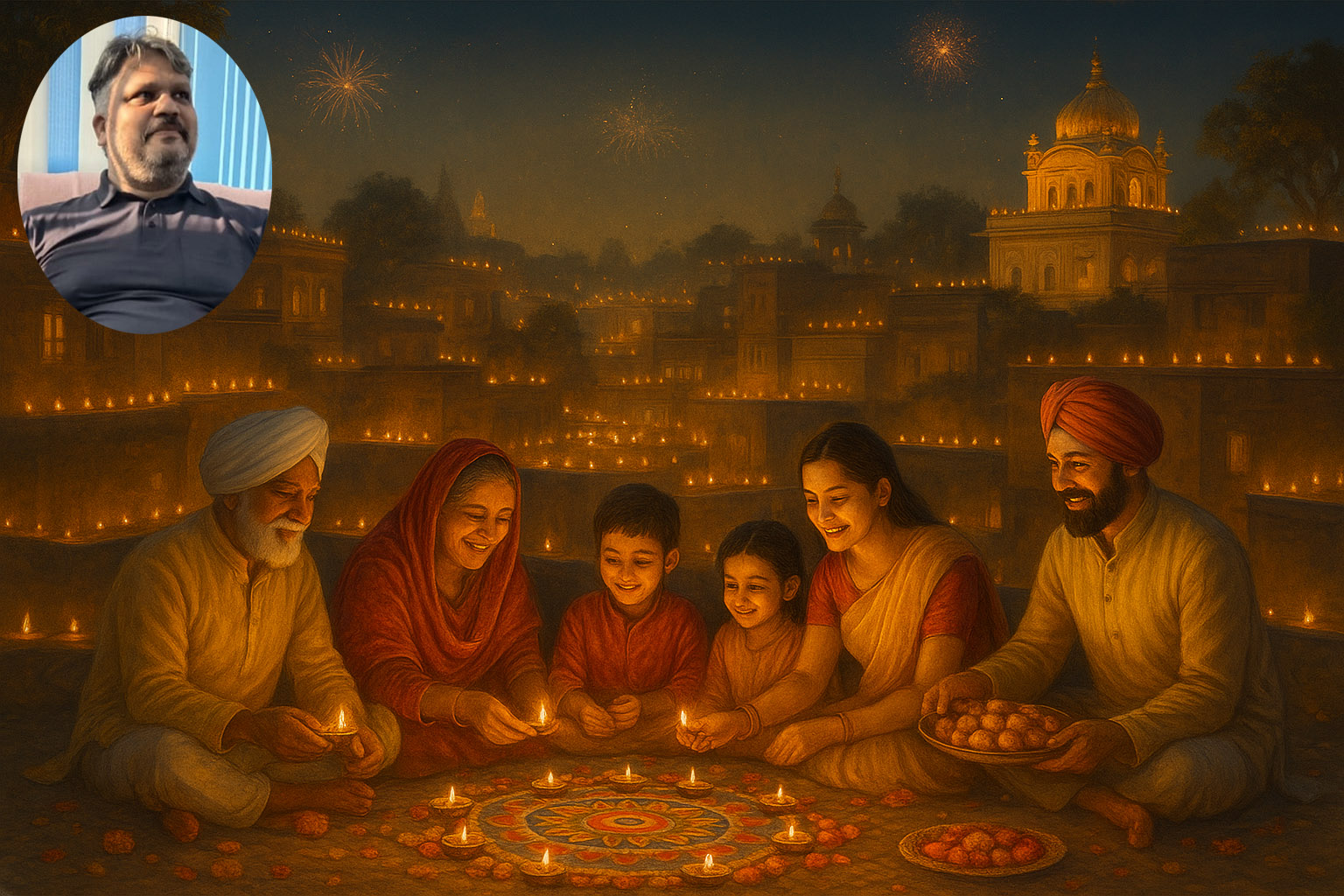The Festival of Joy Merriment and Lights Diwali
India is a land of religiously inclined people. Here, every season and every month witnesses the celebration of some festival, each with its own religious and historical significance. Diwali, also known as Deepavali or Bandi Chhor Divas, is one such festival eagerly awaited by every Indian. It is a shared festival celebrated by Hindus, Sikhs, Jains, and some Buddhists. While people of all faiths light lamps in their homes, share sweets, and extend greetings to their Hindu and Sikh brethren to celebrate this festival, it is primarily observed with great enthusiasm by the Hindu and Sikh communities in northern India.
India is a land of religiously inclined people. Here, every season and every month witnesses the celebration of some festival, each with its own religious and historical significance. Diwali, also known as Deepavali or Bandi Chhor Divas, is one such festival eagerly awaited by every Indian. It is a shared festival celebrated by Hindus, Sikhs, Jains, and some Buddhists. While people of all faiths light lamps in their homes, share sweets, and extend greetings to their Hindu and Sikh brethren to celebrate this festival, it is primarily observed with great enthusiasm by the Hindu and Sikh communities in northern India. This festival falls in the month of Kartik (between October and November). Diwali symbolizes the victory of light over darkness, good over evil, and knowledge over ignorance.
According to Hindu mythology, Diwali is associated with Goddess Lakshmi, the deity of wealth and prosperity, and Lord Ganesha, the remover of obstacles and the god of wisdom. As per the Ramayana, on this day, Lord Rama, along with his brother Lakshman and wife Sita, returned to Ayodhya after defeating Lanka. To celebrate their return, the people of Ayodhya adorned their homes and palaces with beautiful rows of lamps. In various regional traditions, this festival is also linked to Sita, Rama, Krishna, Goddess Durga, Shiva, Kali, Hanuman, Kubera, Yama, Yamuna, Dhanvantari, or Vishwakarma. In Sikhism, this day holds special significance as well. On this day, the sixth Sikh Guru, Sri Hargobind Sahib Ji, was released from Gwalior Fort along with 52 kings during the reign of Mughal Emperor Jahangir. The Sikh community lit lamps and celebrated with joy, which is why this day is also known as Bandi Chhor Divas. During Diwali, Sikh devotees visit Gurdwaras to pay their respects and pray for the well-being of all. The Diwali celebration at Sri Darbar Sahib in Amritsar is world-famous, attracting lakhs of people. The sight of lamp decorations and spectacular fireworks is truly unique and mesmerizing. The word "Diwali" is derived from the Sanskrit words "Deep" (meaning lamp, light, or something radiant) and "Avali" (meaning row, continuous line, or series).
Undoubtedly, Diwali is a festival of joy and merriment and should be celebrated with traditional simplicity and goodwill. However, with changing times and the influence of modernity, the ways of celebrating festivals have transformed. Alongside traditional lamp decorations, crores of rupees are spent on fireworks and crackers. Celebrating festivals has now become a display of wealth and status. Firecrackers and fireworks pollute the air, causing breathing difficulties for children and the sick. The issue of pollution has become so severe that the country’s highest court has had to issue directives to regulate the timing of fireworks. This problem is even more acute in large cities. During Diwali, hospitals deploy special teams of doctors and staff to handle accidents caused by firecrackers. Fire brigades and their personnel are kept on high alert. Governments continuously educate people about the harm caused by firecrackers and pollution, yet accidents occur every year, fires break out, and sometimes there is loss of life and property. Some people also indulge in substance abuse on this day, which dims the spirit of the festival. Adulterated sweets are sold in large quantities, and some individuals engage in gambling, a major social evil that leads to the ruin of families.
Diwali should be celebrated as a triumph over darkness and ignorance. Like all festivals, Diwali brings a message of joy, brotherhood, and love to society. Let us pledge to eradicate the evils prevalent in society on this day. Let us celebrate a noise-free, pollution-free festival and contribute to preserving the beauty of nature. Heartfelt Diwali greetings to all.
-Davinder Kumar


